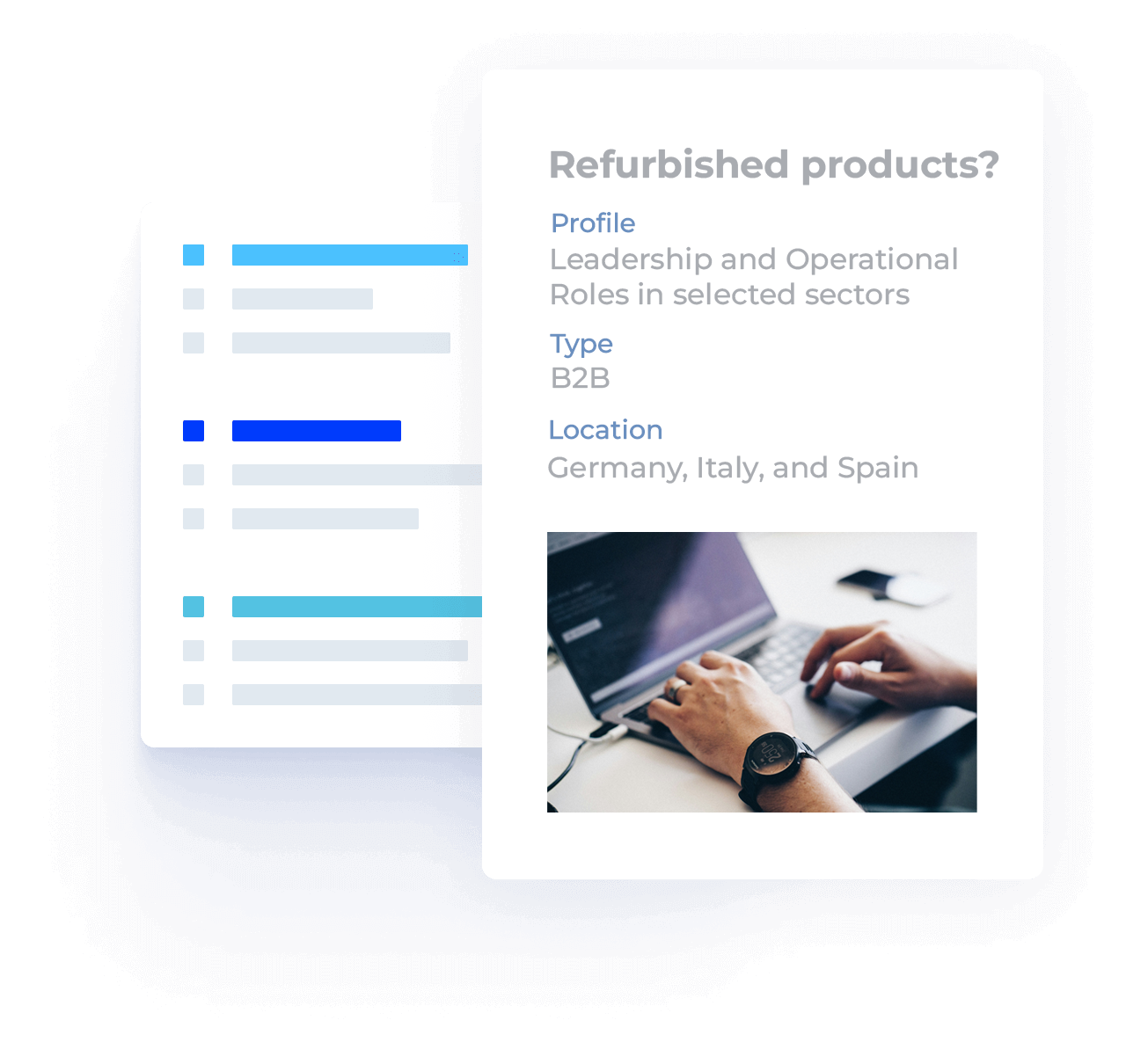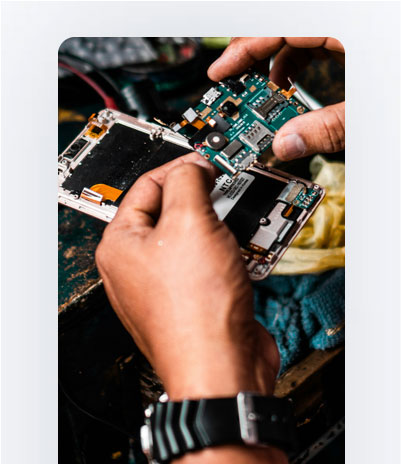B2B Recruitment
Assessing the Market for Refurbished Products in European Industries
Assessing the market for refurbished products within specific European industries and understanding the factors influencing their adoption.

Project Name
Assessing the Market for Refurbished Products in European Industries
Projects Timeline
2 weeks, Q4 2024
Services
Sample Selection
Research Type
B2B Sampling
Table of Contents
Key Metrics
Highly-targeted Respondents
Languages
Weeks
1
Project Background
A quantitative online survey was conducted targeting key decision-makers in selected sectors across Germany, Italy, and Spain. The survey aimed to gather insights into the perception, adoption, and challenges associated with refurbished products. The questionnaire was designed in the respective local languages to ensure clarity and accuracy in capturing responses.
2
Project Challenges
One significant challenge encountered during the survey process was participant dropout. To address this issue, adjustments were made to the survey design based on the insights gathered, ensuring improved engagement and completion rates.
Understanding the decision-making process for purchasing refurbished products also proved complex, as it involved balancing key factors such as cost advantages, sustainability goals, concerns about quality, and product availability.



3
Solution Provided
To address the key research questions, quantitative research techniques were employed. The survey was distributed via email and LinkedIn, which allowed a comprehensive understanding of the current perception, adoption, and factors influencing the use of refurbished products within the targeted industries, as well as the challenges and opportunities associated with their integration into business operations. The fieldwork was completed in less than two weeks.
4
Sampling Process
The survey was designed to gather valuable insights from professionals working in key industries, including water and water treatment, consumer goods (food, packaging, pharmaceuticals), metal, mineral, and mining, public tertiary buildings, and lifting companies (elevators, cranes).
🎯
Targeted to Leadership and Operational Roles
The aim was to understand the perspective toward refurbished products of individuals in leadership and operational roles such as CEOs, CTOs, Plant/Director Managers, Production/Operation Managers, Purchase Managers, and Maintenance Managers.
5
Outcome
Integrating refurbished products into business operations presented logistical challenges, including compatibility with existing systems, supplier reliability, and potential resistance to change within organizations.
Despite the obstacles, the research also highlighted significant opportunities, such as cost savings, reduced environmental impact, and the potential for fostering innovation in supply chain management.
6
Conclusion
In conclusion, this study provided a comprehensive understanding of the refurbished products market in Europe, highlighting key segments with significant growth potential. By uncovering the drivers and barriers influencing consumer decisions, it offered actionable insights for businesses aiming to capitalize on this market. Additionally, the study’s recommendations can serve as a strategic guide for policymakers and industry stakeholders to foster the growth and sustainability of the refurbished products sector, contributing to a more circular and resource-efficient economy in European countries.







